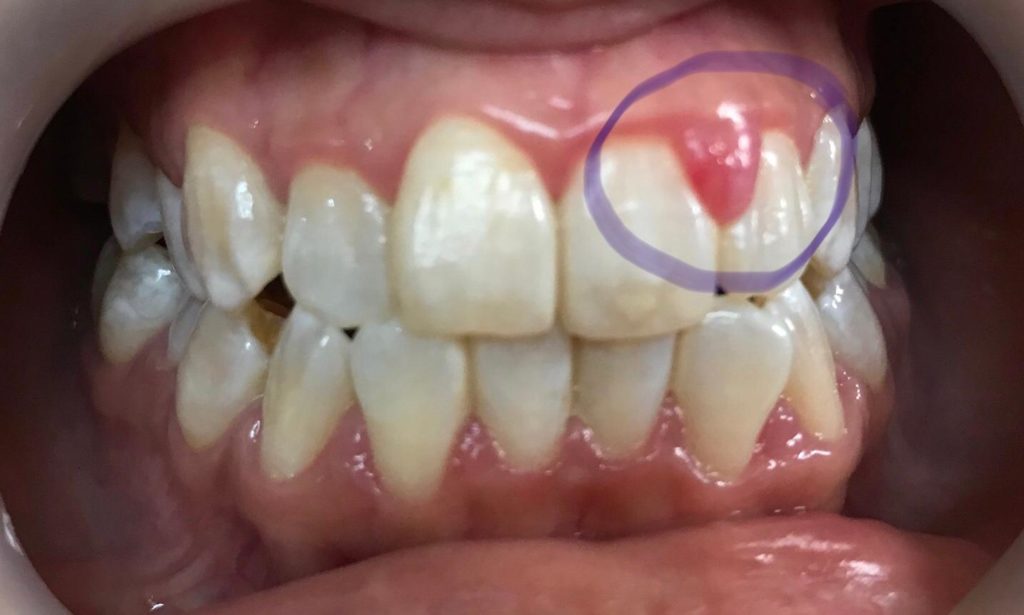10 Gum Swelling Fixes

Gum swelling, also known as gingivitis, is a common problem that affects millions of people worldwide. It is characterized by red, tender, and inflamed gums that can cause discomfort and pain while eating, drinking, or even breathing. If left untreated, gum swelling can lead to more serious oral health issues, such as periodontitis, tooth loss, and even systemic diseases like diabetes and heart disease. Fortunately, there are many ways to fix gum swelling, and in this article, we will explore 10 effective solutions to help you achieve healthy, happy gums.
Understanding the Causes of Gum Swelling
Before we dive into the fixes, it’s essential to understand the causes of gum swelling. The most common causes include:
- Poor oral hygiene: Failure to brush and floss regularly can lead to plaque buildup, which irritates the gums and causes inflammation.
- Poor diet: Consuming sugary and acidic foods and drinks can contribute to tooth decay and gum disease.
- Smoking and tobacco use: Tobacco use can reduce blood flow to the gums, making them more susceptible to disease.
- Hormonal changes: Fluctuations in hormone levels during pregnancy, menstruation, or menopause can affect gum health.
- Genetics: Some people may be more prone to gum disease due to their genetic makeup.
Fix 1: Improve Your Oral Hygiene
Maintaining good oral hygiene is the first step in fixing gum swelling. This includes:
- Brushing your teeth at least twice a day with a fluoride toothpaste
- Flossing once a day to remove food particles and plaque from between your teeth
- Using a mouthwash to kill bacteria and reduce inflammation
- Visiting your dentist regularly for check-ups and cleanings
According to the American Dental Association (ADA), brushing your teeth for at least two minutes, twice a day, can help remove plaque and prevent gum disease.
Fix 2: Use a Saltwater Rinse
Rinsing your mouth with warm salt water can help reduce gum swelling and kill bacteria. To make a saltwater rinse, mix 1 teaspoon of salt with 8 ounces of warm water and swish it around your mouth for 30 seconds before spitting it out.
How to Make a Saltwater Rinse
- Mix 1 teaspoon of salt with 8 ounces of warm water
- Swish the solution around your mouth for 30 seconds
- Spit out the solution and repeat as needed
Fix 3: Apply a Cold Compress
Applying a cold compress to your gums can help reduce swelling and ease pain. To make a cold compress, wrap an ice pack or a cold, damp washcloth in a towel and apply it to your gums for 5-10 minutes.
Cold Compress: Pros and Cons
| Pros | Cons |
|---|---|
| Reduces swelling and pain | May not be effective for severe gum swelling |
| Easily available and inexpensive | May cause discomfort or numbness |

Fix 4: Try a Desensitizing Toothpaste
If your gum swelling is caused by tooth sensitivity, using a desensitizing toothpaste can help. Desensitizing toothpastes contain ingredients like potassium nitrate or strontium chloride that can help block the dentinal tubules and reduce sensitivity.
What is desensitizing toothpaste?
+Desensitizing toothpaste is a type of toothpaste that contains ingredients that help block the dentinal tubules and reduce tooth sensitivity.
Fix 5: Increase Your Vitamin C Intake
Vitamin C is essential for healthy gums, and increasing your intake can help reduce gum swelling. Foods rich in vitamin C include citrus fruits, strawberries, and bell peppers.
Vitamin C is essential for healthy gums, and increasing your intake can help reduce gum swelling.
Fix 6: Use a Hydrogen Peroxide Mouthwash
Hydrogen peroxide mouthwash can help kill bacteria and reduce inflammation. However, it’s essential to use it in moderation and dilute it with water to avoid damaging your gums or teeth.
Hydrogen Peroxide Mouthwash: Myth vs. Reality
| Myth | Reality |
|---|---|
| Hydrogen peroxide mouthwash is harsh and can damage gums and teeth | Hydrogen peroxide mouthwash can be effective in killing bacteria and reducing inflammation when used in moderation and diluted with water |
Fix 7: Avoid Sugary and Acidic Foods
Consuming sugary and acidic foods and drinks can contribute to tooth decay and gum disease. Avoiding these foods or consuming them in moderation can help reduce gum swelling.
The Future of Oral Health: Avoiding Sugary and Acidic Foods
As the world becomes more health-conscious, avoiding sugary and acidic foods is becoming increasingly important for maintaining good oral health.
Fix 8: Try Oil Pulling
Oil pulling is an ancient Ayurvedic practice that involves swishing oil around your mouth to remove bacteria and promote oral health. Coconut oil, sesame oil, and sunflower oil are popular choices for oil pulling.
The History of Oil Pulling
Oil pulling has been practiced for centuries in Ayurvedic medicine and is believed to have originated in ancient India.
Fix 9: Use a Gum Massager
A gum massager can help increase blood flow to your gums and reduce inflammation. You can purchase a gum massager at most dental supply stores or online.
How a Gum Massager Works
A gum massager works by applying gentle pressure to the gums, increasing blood flow and reducing inflammation.
Fix 10: Visit Your Dentist
Finally, visiting your dentist regularly is essential for maintaining good oral health and fixing gum swelling. Your dentist can perform a thorough cleaning, examine your gums for any signs of disease, and provide personalized advice on how to improve your oral health.
Additional Resources
- American Dental Association (ADA): https://www.ada.org
- National Institute of Dental and Craniofacial Research (NIDCR): https://www.nidcr.nih.gov
In conclusion, gum swelling is a common problem that can be fixed with the right combination of good oral hygiene, diet, and professional care. By following these 10 fixes and maintaining a healthy lifestyle, you can achieve healthy, happy gums and reduce your risk of oral health problems. Remember to always consult with your dentist before trying any new remedies or treatments, and don’t hesitate to reach out if you have any further questions or concerns.

